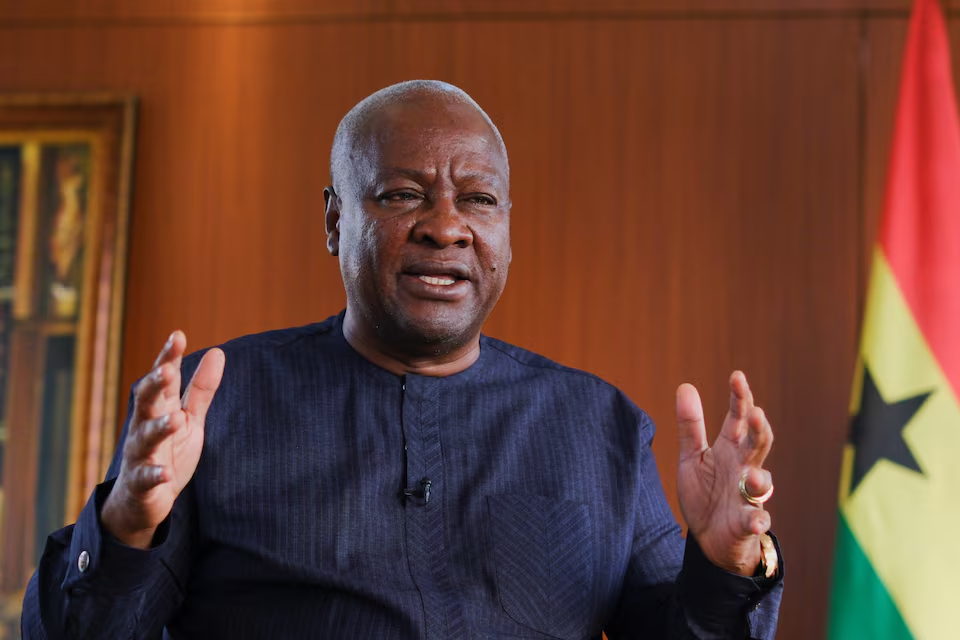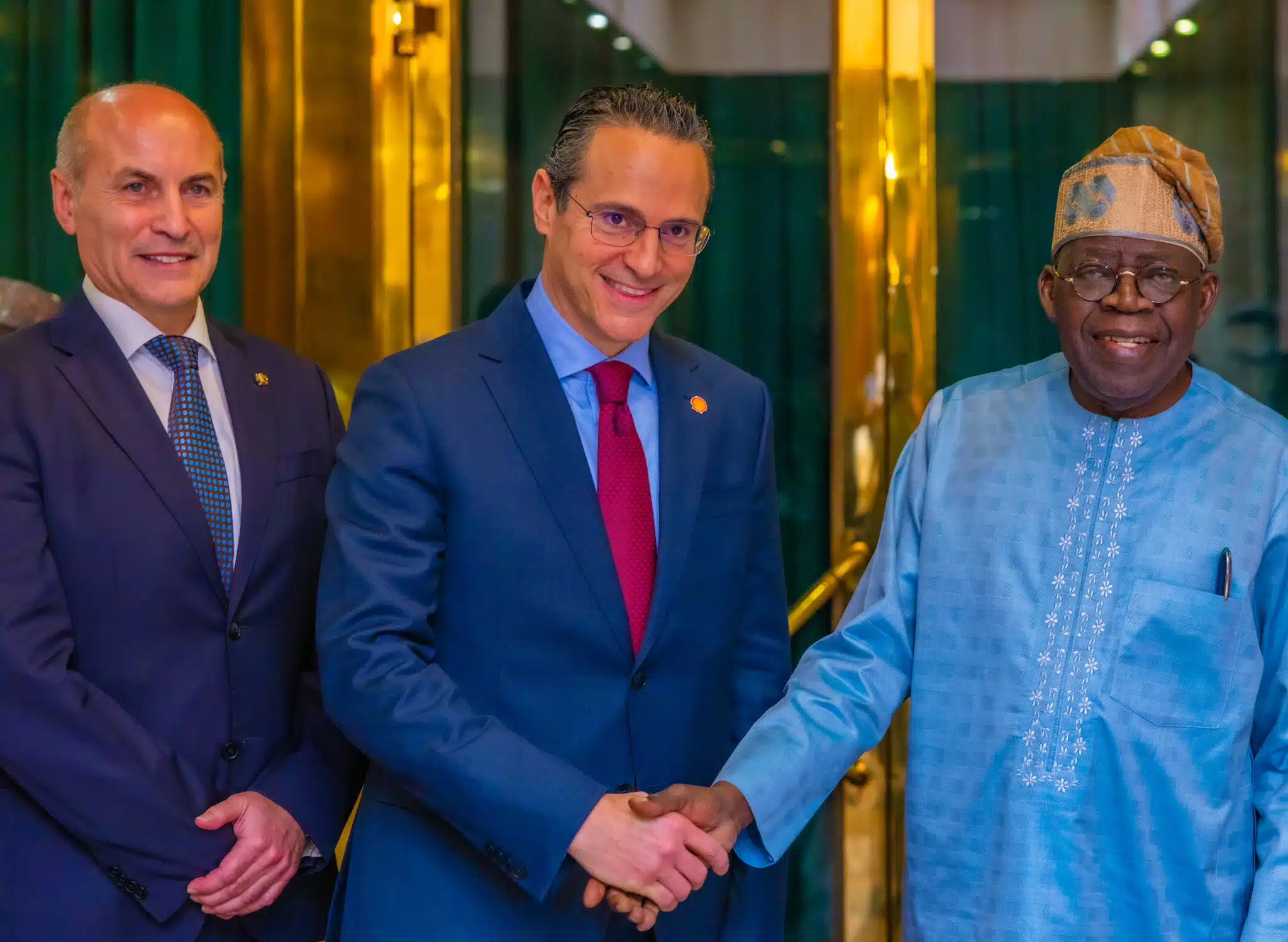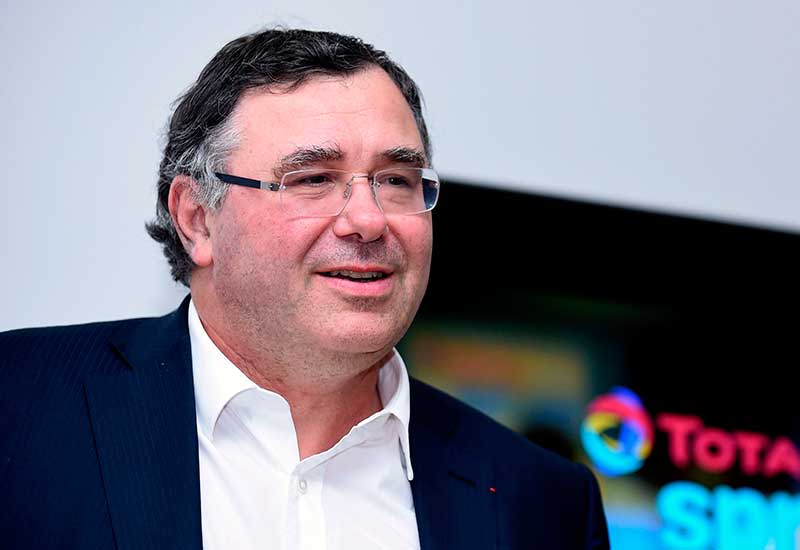The fragile truce between the Nigerian Union of Petroleum and Natural Gas Workers and Dangote Refinery has collapsed, throwing the fuel supply chain into fresh uncertainty.
The dispute, which centres on the right of tanker drivers to freely join unions, has escalated into a direct confrontation between labour and one of Nigeria’s biggest private investors.
The union accused the refinery of defying a Memorandum of Understanding signed earlier this week under the watch of the Department of State Services and the Ministry of Labour and Employment.
NUPENG claimed Dangote’s representatives, led by Sayyu Aliu Dantata, ignored the resolution and ordered drivers to remove union stickers from their trucks.
Last Thursday, NUPENG’s national president, Williams Akporeha, said Dantata also deployed security agencies to intimidate drivers.
He accused him of calling in naval officers to disperse union members at the refinery gates.
“Alhaji Sayyu Aliu Dantata flew over them several times with his helicopter and then called the navy of the Federal Republic to come over ostensibly to crush the union officials.
“Our members are waiting for him and his agents to run them over,” Akporeha said in a statement.
The refinery denied the allegations, saying membership of unions remains a voluntary right and that no driver had been compelled to renounce affiliation.
It described the claims as false and part of a broader attempt to undermine private sector investment.
In this article, Energy in Africa explores the full details of the clash between both parties.
Roots of the dispute
The row began earlier this month when NUPENG alleged that the refinery sought to bar drivers of its 4,000 compressed natural gas trucks from joining any union.
The union described the move as an assault on freedom of association guaranteed under the 1999 Constitution and international conventions.
Dangote’s trucks, designed for long distance fuel distribution, had been delayed by supply chain challenges in China but were scheduled to begin operations before the end of the year.
According to NUPENG, refinery managers and MRS, a logistics company owned by Dantata, required drivers to sign undertakings not to join oil and gas unions.
The union reacted by shutting down depots and fuel stations nationwide on September 8.
Petrol queues built up across major cities as tankers parked at depot gates in protest.
The industrial action was suspended when both sides signed the MoU in Abuja.
At that meeting, Labour Minister Muhammadu Dingyadi presided as representatives of the Nigeria Labour Congress, the Trade Union Congress, DSS, and other agencies witnessed the signing.
The understanding was meant to guarantee drivers’ rights and allow normal operations at the refinery.
However, NUPENG alleged that within 48 hours the agreement was broken.
Drivers were allegedly forced into the refinery without following union loading rules.
The leadership said this act amounted to provocation and disregard for the presence of government guarantors.
Dangote responds to the union
In a recent statement, Dangote Petroleum Refinery dismissed the allegations as “wholly inaccurate” and said its investment was designed to strengthen Nigeria’s economy.
The company said it had launched 4,000 CNG trucks and planned to create more than 60,000 direct jobs.
It argued that the employment packages exceeded national standards and included pensions, health insurance, housing support, and medical cover.
“Far from threatening livelihoods, this initiative is expected to create over 60,000 direct jobs and many more indirectly,” the statement read.
The refinery also rejected claims of monopoly, pointing to the 30 refinery licences already issued to other investors.
It cited competitors such as BUA and Waltersmith that are building plants.
The company said its investment had already stabilised the domestic market, cutting diesel prices by more than 30% in the past year.
On its part, NUPENG accused the refinery of “impunity” and warned that government security agencies should not be used as private enforcement arms.
“His wealth cannot make him above the law. Security agents should not allow an individual to ride roughshod even while not observing terms of agreement reached in meetings in which they themselves facilitated,” Akporeha said.
The union placed members on red alert for the resumption of nationwide strikes. It also called on the NLC, the TUC, and international labour allies to prepare solidarity action.
NUPENG’s general secretary, Afolabi Olawale, said the refinery was planning to use towing trucks to remove vehicles blocking non compliant drivers.
In response, the union reinforced its blockade at the refinery gates on Friday.
Broader effect on the sector
Fuel marketers expressed concern about the breakdown of the agreement, warning that prolonged confrontation could disrupt distribution.
The Petroleum Products Retail Outlet Owners Association of Nigeria (PETROAN) urged both sides to respect the truce to avoid scarcity.
Moreover, PETROAN’s president, Billy Gillis Harry, said the government deserved credit for securing the MoU but warned that dishonouring it would trigger industrial unrest.
“All parties should adhere to the terms and spirit of the MoU signed. PETROAN expresses gratitude to the government and President Bola Tinubu for the swift intervention to save our nation from imminent scarcity,” he said.
The Nigeria Labour Congress also weighed in.
Its acting general secretary, Benson Upah, told reporters that the refinery’s conduct amounted to a breach of agreement.
“We usually take decisions when agreements are violated. But note, the decision to take action rests with the appropriate organs of the Congress,” he explained.
An NLC executive, who asked not to be named, went further by accusing the refinery of showing contempt for Nigerian institutions.
“For Dangote to turn around and violate it is a slap on the nation. Where then is the refinery located what we might as well call the ‘Dangote Republic’? That is treasonous,” the official said.
The breakdown of the truce raises questions about how far government authorities can enforce agreements in which they acted as guarantors.
Looking strike and fuel scarcity fears
As of Thursday, NUPENG warned that industrial action could resume on September 15 if the refinery fails to comply with the MoU.
Such a move could cripple distribution, cause petrol queues, and trigger price spikes.
Observers note that the crisis now goes beyond a simple labour management disagreement. It tests the strength of Nigeria’s labour laws and the government’s authority over powerful private firms.
For ordinary Nigerians, however, the immediate concern is fuel scarcity. A repeat of the queues and shutdowns seen during the earlier strike could worsen inflation and disrupt transport systems nationwide
The refinery insisted it remains committed to national development and harmony with workers. But the union maintained that unless its rights are respected, it will not hesitate to mobilise a full scale strike.
As the deadline approaches, the outcome will determine whether Nigeria’s biggest private refinery becomes a model of industrial partnership or a symbol of broken promises in the nation’s troubled oil sector.
On its part, Dangote said he is going on with the plan to employ his own trucks to distribute petrol across the country.
He also rejected the accusation of NUPENG that the drivers of the his company earn way less than industry standard.
“We have not displaced any jobs; we are creating many more. The CNG trucks will not be operated by robots.
“Our employees earn salaries three times the minimum wage. Our drivers receive a living wage, life insurance, health insurance covering themselves, their spouses, and up to four children, as well as a lifelong pension,” Dangote said in a broadcast interview on Monday.









